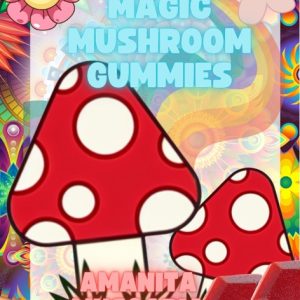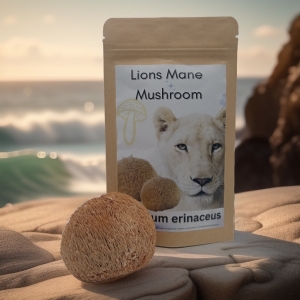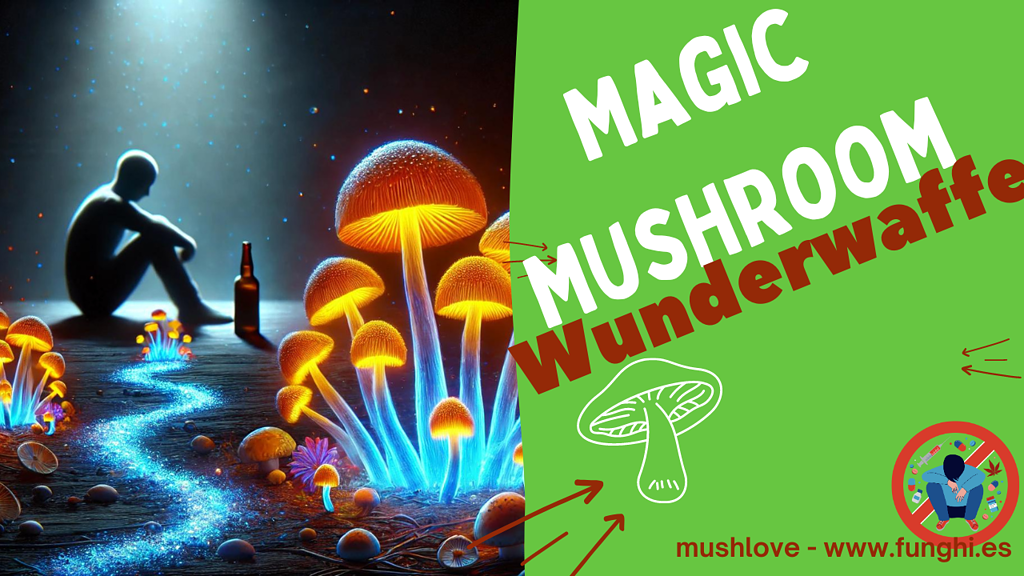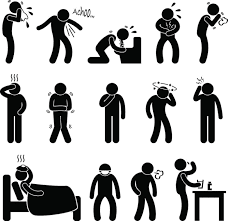Magic mushrooms: a revolution in the treatment of addiction
In recent years, science has increasingly explored the therapeutic potential of substances that were long considered dangerous or even illegal. One area that seems particularly promising is the use of magic mushrooms in the treatment of addiction. Studies have shown that magic mushrooms, which contain the active ingredient psilocybin, can have profound effects on consciousness – and may be a powerful weapon against addiction. For alcohol and nicotine addiction in particular, there are indications that magic mushrooms could offer an alternative form of treatment that is both effective and sustainable.
The science behind psilocybin
Magic mushrooms contain the psychoactive substance psilocybin, which is converted to psilocin in the body. Psilocin influences the brain by altering the activity of serotonin receptors, in particular the 5-HT2A receptor. This process leads to changes in consciousness, perception and emotional processing. Psilocybin is thought to reduce default mode network (DMN) activity in the brain, which allows people to break deeply embedded patterns of thought and behavior. This property makes psilocybin an intriguing candidate for the treatment of addictions, which are often characterized by rigid, self-destructive habits.
Magic mushrooms and addiction therapy
Addiction is a chronic disorder characterized by a compulsive craving for a substance or behavior, despite negative consequences. Traditional treatment methods, such as behavioral therapy and medication approaches, can often be successful, but relapse rates are high. With alcohol and nicotine addiction in particular, many people continue to struggle with relapse and cravings for the drug, even after years of abstinence.
Psilocybin-based therapies offer a radically new approach here. Unlike conventional drugs, which often only treat the symptoms, psilocybin could help to break through the underlying psychological mechanisms of addiction. By altering neural patterns in the brain and enabling new perspectives, psilocybin could help addicts redefine their relationship with the drug and achieve lasting behavioral changes.
Alcohol dependence and psilocybin
Alcohol addiction is one of the most common addictions worldwide and one of the most difficult to treat. Alcohol addiction destroys not only lives, but also families and communities. Traditional treatment includes withdrawal, rehabilitation and various forms of psychotherapy, but relapse rates remain high. This is where psilocybin could offer a new hope.
A high-profile 2015 study conducted by New York University and Langone Medical Center showed that psilocybin, in conjunction with psychotherapy, can significantly help reduce alcohol consumption. Participants in the study who received a dose of psilocybin reported a profound change in their perspective on their addiction and often felt liberated from their compulsion to drink alcohol. After eight months of abstinence, 60% of participants who received psilocybin achieved a significant reduction in alcohol consumption compared to a control group.
An important factor in the effectiveness of psilocybin in the treatment of alcohol addiction is the depth of self-awareness and emotional breakthrough it allows patients. Many report a kind of “reboot” of the brain that allows them to shed old habits and develop new patterns of behavior. These deep insights, combined with therapeutic support, appear to be a powerful weapon against alcohol addiction.
-
Product on sale
 Muscimol GummiesOriginal price was: 18,95 €.13,95 €Current price is: 13,95 €.
Muscimol GummiesOriginal price was: 18,95 €.13,95 €Current price is: 13,95 €. -
 Hericium organic – 60 capsules33,95 €
Hericium organic – 60 capsules33,95 €
Nicotine addiction and psilocybin
Nicotine addiction is another widespread addiction that affects millions of people and claims countless lives every year. Despite the availability of nicotine replacement therapies and other forms of treatment, it remains extremely difficult for many smokers to overcome the addiction for good. This is where magic mushrooms also offer promising potential.
A 2014 study by Johns Hopkins University investigated the effect of psilocybin on nicotine addiction. The results were impressive: 80% of participants who received psilocybin in combination with cognitive behavioral therapy were able to quit smoking one year after treatment. This is a remarkable success rate, especially compared to conventional treatments where the long-term abstinence rate is usually less than 30%.
The researchers suspect that psilocybin helps people to gain deeper psychological insights that enable them to overcome their nicotine addiction. Some patients report that they felt a deeper connection to themselves and their environment during their psilocybin session, which permanently changed their craving for cigarettes.
The therapeutic process with magic mushrooms
A crucial aspect of psilocybin therapy is its correct administration. The magic mushrooms are taken in a controlled, safe environment, usually under the supervision of trained therapists. These sessions are usually accompanied by intensive psychotherapeutic support to ensure that patients can integrate their experiences and use the insights to combat their addiction.
The effects of psilocybin usually occur within 30 to 60 minutes after ingestion and can last up to six hours. During this time, the patient often goes through deep emotional and psychological processes, which are supported by the presence of a therapist. The therapeutic follow-up is just as important, as it helps patients to reflect on their experiences and integrate them into everyday life.
Risks and legal hurdles
Although the results are promising, magic mushrooms are not without risks. Psilocybin can trigger severe anxiety, paranoia or even psychotic episodes in some people. Therefore, it is crucial that these substances are used under medical supervision and in a safe setting.
Another obstacle is the legal status of psilocybin. In many countries, including Germany, psilocybin is still a banned substance. This makes research and access to this potentially life-changing therapy difficult. However, in some countries and US states, progress is being made towards the legalization or decriminalization of psilocybin for therapeutic purposes.
The future of addiction treatment
The studies to date on psilocybin in the treatment of addiction are promising, but more research is needed to understand the full potential of this substance. Phase 3 clinical trials are needed to further confirm the safety and efficacy of psilocybin before it can be approved as a regular treatment.
Should psilocybin one day be integrated into regular medical practice, it could change the lives of millions of people struggling with alcohol or nicotine addiction. It offers a new perspective on the treatment of addiction that goes beyond mere symptom control and enables patients to have profound, transformative experiences that can permanently change their relationship with addiction.
Conclusion
Magic mushrooms and the active ingredient they contain, psilocybin, could represent a revolution in the treatment of addiction. Psilocybin’s ability to alter consciousness and break deeply ingrained patterns of thought and behavior could offer a groundbreaking solution for the treatment of alcohol and nicotine addiction. Studies to date show promising results, but further research and regulatory adjustments are needed to realize the full potential of this substance.
If psilocybin can be safely and effectively integrated into addiction treatment, we could be at the beginning of a new era of addiction treatment – an era in which magic mushrooms hold the key to overcoming addiction.


